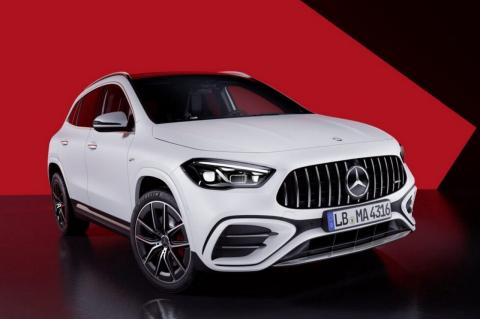We break a spear in favor of the zero emission vehicle and we give you three weighty arguments to buy an electric car in 2023 without being afraid.
Despite the fact that sales of electric vehicles rise year after year in Spain, it still continues to generate some suspicion among a large part of the public. It is true that it poses some problems, such as the price or charging times, and the current price of electricity does not help either. But today we want to give you three good arguments to buy an electric car in 2023.
The factors that hold back the purchase of electric vehicles are well known. On the one hand, there is the price of the vehicles, clearly higher than the gasoline and diesel equivalents. On the other hand, the fear of being stranded on the road because the battery has run out.
To this must be added the scarce infrastructure to recharge the batteries and the current cost of energy. In fact, the latter has become the problem of the electric car, something that almost foresaw a few years ago.
Except for the price of energy, the rest of the arguments have become a kind of mantra. It cannot be said that these problems have disappeared, because they have not, but they are less and less so.
Today, at AutoBild we want to break a spear in favor of battery-powered vehicles and give you three good arguments to buy an electric car in 2023 without being afraid of it.
Arguments in favor of the electric car: it is not the future, it is the present
The electric car is no longer the future, but the present. Before, we saw the electric car as something very distant, like when the scientific community warns that this or that phenomenon is going to occur in 50 years. However, it is not so.
However, the automobile industry has stepped on the accelerator of electrification and the different manufacturers already have ambitious plans underway with a wide range of electrified models that will arrive in the coming years.
To give an example, at the beginning of the year, Peugeot celebrated its E-Lion Day in which it presented its electric roadmap for the coming years and announced, among other things, that it will have a 100% electric offer in 2025. And 2025 It is just around the corner.
How to buy a car in Germany
But if you still see 2025 as a distant year, on January 1 the Low Emission Zones (ZBE) came into force in all Spanish municipalities with more than 50,000 inhabitants, areas that restrict traffic to the most polluting vehicles, in function of DGT labels.
Logically, the vehicles that benefit the most are electric ones, which can be accessed without any type of restriction and, in addition, they can park in SER zones without limit of hours and for free.
On the other hand, we said at the beginning that one of the factors that stops many potential buyers of an electric car is the price. It is clear that it is an obstacle, since they are much more expensive than equivalent models with a combustion engine.
But it is also true that the differences have narrowed in recent times, as the offer increases and technology improves. To this must be added aid of up to 7,000 euros from the MOVES III Plan, which makes the purchase of a battery-powered vehicle more viable.
More autonomy and shorter charging times
The second argument for buying an electric car in 2023 is that autonomy is no longer a problem. Or, at least, it is not as much as a few years ago, when the models on the market offered real autonomy ranges of about 200 kilometers.
Now, the average distance an electric car can travel has nearly doubled. The current batteries are more efficient and the propulsion systems are designed to optimize the performance of the battery and, consequently, offer a greater autonomy, around 400 kilometers in many cases.
At the same time, the development of technology has not only made it possible to increase autonomy, but also to shorten recharging times. Through fast charging systems, 80% of the battery can be recovered in half an hour and only a few minutes to recharge enough energy to travel 100 or 150 kilometers.
Increase charging points
Finally, another argument for buying an electric car in 2023 is that there are more and more charging points distributed in different places, both in cities and outside them.
Nor are we going to hide the fact that development in this sense is not being as fast as we would like and that we are further behind than other European countries. But, despite everything, the chargers are increasing.
And they should increase much more throughout this year, since, at the end of 2021, the Government approved Royal Decree 29/2021, of December 29, by which measures are adopted to promote electric mobility, self-consumption and deployment of renewable energy.
Among these measures, the obligation to install charging points in certain public access spaces stands out, that is, supermarkets, hotels, restaurants, shopping centers or private non-residential buildings, such as public garages or workplaces.
So, starting this year, all private non-residential buildings that have car parks with more than 20 spaces must have at least one charger for every 40 spaces. In the event that the parking area exceeds 1,000 spaces, the obligation to install electric charging points will be one point for every 100 spaces.
Likewise, the buildings owned by the General State Administration will be obliged to install a charging point for every 20 spaces, or fraction, when said car park has up to 500 spaces.
And, even if the sign of the Government changes in the next elections, this route time should not change, since it is part of the Climate Change Law promoted by the European Union and which commits all member states.













